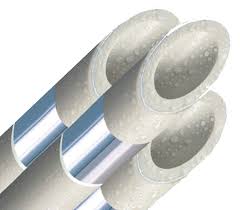Dec . 02, 2024 02:30 Back to list
hdpe pipe used for products
The Versatility of HDPE Pipe in Various Applications
High-Density Polyethylene (HDPE) pipe has become a popular choice in various industries due to its remarkable properties and versatility. Renowned for its durability, flexibility, and resistance to chemicals and environmental stress, HDPE is increasingly replacing traditional materials like metal and concrete in various applications. This article will explore the many uses of HDPE pipes and highlight their advantages in different sectors.
1. Water Supply Systems
One of the primary applications of HDPE pipes is in water supply systems. Due to their high resistance to corrosion and chemicals, HDPE pipes are ideal for transporting potable water. The smooth interior surface of these pipes minimizes friction loss, ensuring efficient flow and reducing energy costs. Additionally, HDPE is resistant to biofilm formation, making it a safe choice for drinking water applications.
2. Wastewater Management
HDPE pipes also play a crucial role in wastewater management. Their resistance to chemicals and ability to withstand harsh environmental conditions make them suitable for sewer and stormwater applications. The long lifespan of HDPE pipes—often exceeding 50 years—reduces the need for frequent repairs and replacements, minimizing overall maintenance costs. Moreover, the lightweight nature of HDPE pipes simplifies installation, allowing for quicker project completion.
3. Agricultural Irrigation
In agriculture, HDPE pipes are widely used for irrigation systems. Their flexibility and durability allow for easy installation and adaptation to various terrains, ensuring efficient water distribution. HDPE is also resistant to UV radiation, which is beneficial for outdoor applications. Furthermore, the use of HDPE pipes for irrigation reduces water loss through seepage, promoting sustainable water usage in farming practices.
4. Industrial Applications
HDPE pipes are used in several industrial applications, including chemical processing and manufacturing. Their resistance to a wide range of chemicals and high temperatures makes them suitable for transporting hazardous materials. Additionally, HDPE pipes can withstand pressure and thermal fluctuations, making them reliable in demanding industrial environments.
hdpe pipe used for products

5. Mining and Resource Extraction
In the mining industry, HDPE pipes are used for the transportation of slurries, water, and chemicals. Their strength and versatility allow them to handle the rigorous conditions often found in mining operations. HDPE pipes can also be found in tailings management systems, where they contribute to environmental protection by containing and transporting waste materials safely.
6. Infrastructure Development
HDPE is increasingly being adopted in infrastructure development projects, such as road and highway construction. These pipes are used for various purposes, including drainage systems and conduits for electrical and telecommunication lines. The lightweight nature of HDPE facilitates easier transport and installation, making it an efficient choice for large-scale infrastructure projects.
Advantages of HDPE Pipes
The benefits of HDPE pipes extend beyond their diverse applications. Some key advantages include
- Durability HDPE pipes are resistant to environmental stress, corrosion, and impact, providing a long service life. - Flexibility The flexible nature of HDPE allows for easy installation in challenging terrains and conditions. - Cost-Effectiveness Although the initial investment may be higher than traditional materials, the long lifespan, reduced maintenance costs, and efficient installation lead to overall savings. - Environmental Benefits HDPE pipes are often made from recycled materials and can be recycled at the end of their life cycle. Additionally, their efficiency in transporting water reduces wastage, supporting sustainability efforts. - Safety The non-toxic properties of HDPE make it suitable for transporting drinking water and other sensitive materials without contamination concerns.
Conclusion
High-Density Polyethylene pipe has emerged as a versatile and reliable solution across various industries. From water supply and wastewater management to agricultural irrigation and industrial applications, HDPE pipes offer a plethora of advantages that cater to modern needs. Their durability, flexibility, and cost-effectiveness make them an excellent choice for businesses and municipalities seeking sustainable and efficient solutions. As industries continue to evolve, the role of HDPE pipes will undoubtedly expand, paving the way for innovative applications in the future.
-
High-Quality PVC Borehole Pipes Durable & Versatile Pipe Solutions
NewsJul.08,2025
-
High-Quality PVC Perforated Pipes for Efficient Drainage Leading Manufacturers & Factories
NewsJul.08,2025
-
High-Quality PVC Borehole Pipes Durable Pipe Solutions by Leading Manufacturer
NewsJul.08,2025
-
High-Quality PVC Borehole Pipes Reliable PVC Pipe Manufacturer Solutions
NewsJul.07,2025
-
High-Quality UPVC Drain Pipes Durable HDPE & Drain Pipe Solutions
NewsJul.07,2025
-
High-Quality Conduit Pipes & HDPE Conduit Fittings Manufacturer Reliable Factory Supply
NewsJul.06,2025

